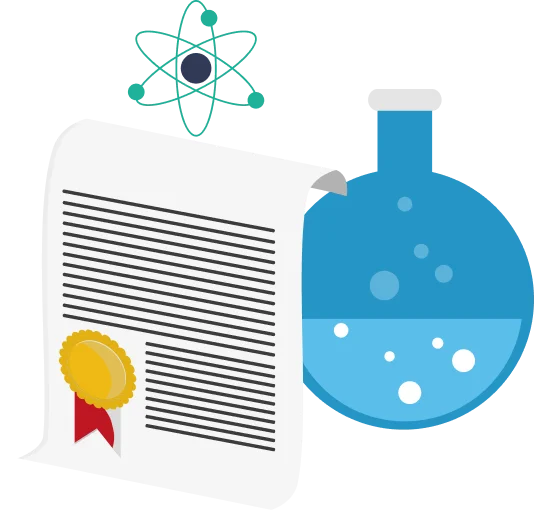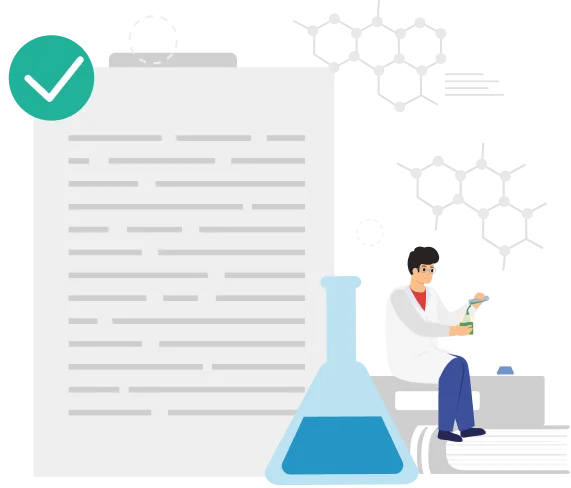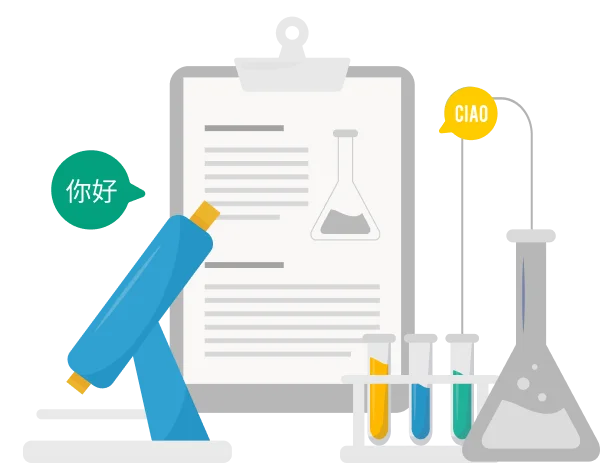
A Trusted Partner For Chemical Translation Services
As the world gets smaller and smaller, companies in the chemical industry are coming up against a pressing demand to expand their worldwide outreach. This necessitates content distribution on a global level, a task that’s quite difficult. Linguistic and cultural differences emerge as a formidable challenge down the road. Removing these barriers and ensuring the accurate conversion of chemical documents requires specialized expertise. This is where you need CCJK. We’re a chemical translation company that has been delivering high-quality chemical translation services since 2000. Our translators are seasoned professionals with an unrivaled reputation for performing chemical translations with accuracy. Contact us today and make your content accessible to all.
Take The Leap With Chemical Engineering Translation
We take pride in our ability to handle all kinds of chemical engineering documents. Whether you need chemical patent translation to ensure global compliance or have other needs such as chemical formula translation, we’ve got you covered.
- SDSs, MSDSs, eSDSs
- Exposure scenarios
- Dossiers
- Chemical Safety Reports
- Summaries of Product Characteristics (SPCs) – Labels
- Any document related to chemicals and the legislation of chemicals.


Chemical Translations That Resonate
Chemical translations are a perfect way to penetrate foreign lucrative markets. But how do you ensure the linguistic and cultural nuances of your company’s message are never lost in translations? And each of your international customers has a consistent brand experience irrespective of their language, culture, region, or market? Well, you need to hire native translators who can render high-quality chemical translation services in as many languages as your worldwide audiences speak. This is what we do. Having a network of qualified translators, we can always help you with chemical translation in the preferred language of your target audience.
Our Qualified Chemical Translators
We have a global network of 30,000 in-country linguists, located in the U.S., UK, China, Italy, Germany, Japan, and Turkey, among many other countries. You only get the service of translators who are specialized in the translation of chemical terms. They only translate into the language they speak natively but also have professional fluency in the source language. And not to mention their advanced degrees and years of experience translating chemical documents. All this enables them to write with simplicity, clarity, speed, and context. For this reason, you can trust us to render professional chemical translation services with the highest quality humanly possible.

Chemical translation made easy. Why wait?
Getting The Chemical Terminology Right
Having language and cultural awareness isn’t enough to offer expert chemical translations. It takes more than just that. A translator unfamiliar with chemical terminologies can misinterpret the translations. You need experts on your side who can get across the complex terminologies and jargon in the chemical industry. This is where we at CCJK thrive. Our highly-trained professional translators understand what language makes perfect sense in the chemical sector. This enables them to render a translation that’s meticulously accurate, easy to understand, and according to the highest industry standards

We’re A Leader In Chemical Translation Services
CCJK brings more than 20 years of experience providing native-quality chemical translation services at the best prices.
30,000+ native translators
We’re a diverse tribe of 30,000 professional translators who only translate in their first language and specialty area, ensuring well-worded, localized translations every time.
Quick turnaround
We boast some of the fastest turnaround times in the translation industry. However, this does not compromise our commitment to quality.
ISO certified
Being an ISO-compliant Chemical translation company, we promise translation services of the highest quality humanly possible.
230+ languages
We present your business to the world in as many as 230 languages and 800+ language combinations. From English to Japanese, Arabic to Cajun - we’ve got the entire globe covered.




